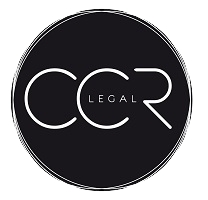
Corporate & Commercial Law
We have been looking after the needs of small businesses across Australia for many years and are passionate about getting results for our clients through practical legal advice delivered cost-effectively. We will listen to your goals and challenges to tailor our services accordingly. Our commercial and corporate services include:
- General business and commercial advice
- Contract preparation, negotiation, and review
- Advice on business structures including partnerships, trusts and companies
- Buying and selling a business
- Commercial and retail leasing
- Debt recovery, bankruptcy, and insolvency
- Advice on management, corporate governance, and compliance
- Assistance with commercial litigation matters
Business Sales and Purchases
There are many legal considerations when buying or selling a business and a range of due diligence matters to be carried out. The ownership of the business, its assets and any ongoing legal obligations must be correctly transferred, employee entitlements will need to be managed, and the necessary licences and permits obtained or assigned to operate the business. The financial and tax implications created by the sale or purchase must also be addressed. We will ensure that all legal requirements are considered and can work with your financial advisor to ensure that the sale or purchase of your business is structured for optimum outcome.
Business Structures
When starting a business, one of the first considerations is the legal structure through which the business will operate. We can help you identify and create the business structure most suitable for your circumstances and future goals.
Many smaller businesses operate successfully as sole traders using an Australian Business Number (ABN). This allows the business owner to offer services or sell goods, employ staff, and perform most business functions. A sole trader, however, is responsible for all decisions and losses in a business. Business income is reported in their personal tax return.
Setting up a business as a company can offer owners more legal and financial protection. A company is registered through the Australian Securities and Investments Commission (ASIC) and must have at least one shareholder (owner) and one director (who runs the business). Any income or losses incurred by the company belong to the company. A company is its own separate legal entity which helps insulate its directors and shareholders from losses. However, this does not mean that company directors have no obligations. A director is responsible for a company and has positive obligations and the personal penalties for deliberate breaches of a director’s duties can be severe.
A partnership may be formed if two or more people share the same vision of success with each contributing their skills, experience, and resources to run the business. The downside is that there is potential for conflict between partners and the partners are jointly and severally liable for the debts of the business.
There are also various types of trusts which may be used by individuals and businesses to achieve different outcomes. Trusts are complex, however, and must be correctly structured and managed to achieve their desired outcomes.
Business Compliance & Corporate Governance
Compliance with various laws and regulations is critical for all businesses in Australia. This includes understanding and complying with employment laws, consumer protection laws, privacy, and competition laws. Businesses must ensure they observe fair trading practices, maintain accurate financial records, and comply with their reporting and taxation obligations. Failure to do so can result in penalties, fines, or legal action.
The Corporations Act 2001 is the key legislation governing the establishment, operation, and regulation of companies in Australia. It sets out the legal requirements for company registration, corporate governance, shareholder rights, director duties, fundraising, and insolvency.
We work with a range of business owners and directors, protecting their legal interests and helping them to navigate the myriad of rules and regulations so they can carry on doing what they do best.
Debt Recovery
As most business owners know, making money is one thing, ensuring that you are paid is another. Particularly in small businesses, financial viability can be heavily dependent upon whether accounts are paid promptly. A business can often recoup an outstanding account with a friendly reminder. When informal methods fail to work, the next step may be to outsource the debt recovery to a lawyer who may issue a letter of demand or statutory demand (if the debtor is a company). The key is to avoid throwing good money after bad by doing your research and taking the approach that is likely to deliver the most cost-effective outcome.
Principal, Cristina Cecere, has worked as a commercial lawyer for many years. She is known for her commercial and empathetic approach and makes it her business to understand your business to provide tailored and strategic advice and services to help you achieve your goals.
If you need assistance, contact [email protected] or call 08 8166 7120.
